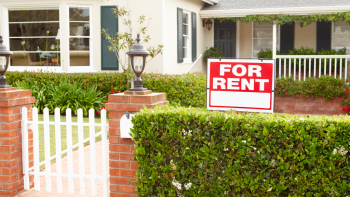
If you’re keen to decrease your living costs so that you’ll be able to increase your savings, there are numerous changes which you can make in order to significantly decrease your living costs.
If you want to learn how to decrease your living costs at home, read on to get a few helpful tips on how to do just that.
Take a Self-Assessment and Look at the Market
Buying a rental property is a little different from buying a house you plan to live in. For one, you will not be eligible for certain home loans when you finance a home for rental or investment purposes.
Likewise, owning a home is vastly different from the responsibility. While you might wait on some minor repairs in your home, your tenants will want everything to work and function correctly. This means you will always need to have some cash stowed away for emergencies. If you are unable to keep the home livable, you may be on the hook for paying for a hotel or other accommodations for your renters.
You should compare the pros and cons as well as consider your lifestyle and abilities.
- Do you have the money to invest in a rental home?
- Will you be doing all the work? And if so, are you handy with a toolbox and cleaning?
- Will you hire a property manager?
- Do you have a plan to maintain the property or handle tenant issues if you go out of town?
- Are you aware of local tenant and landlord laws?
- Can you handle awkward conversations, like asking for rent if it is late?
Being a landlord is not a nine-to-five job. Tenants can have emergencies at any hours, like a water leak or a broken heater. As a landlord, you have a responsibility to maintain the property, so it is safe and habitable.
You do not want to jump into a bad market even if you feel like the time is good for you personally. Compare mortgage rates and consider if it is a sellers’ or buyers’ market.
The current mortgage interest rates seem really low when you search online. However, the interest rates on mortgages are different for properties you plan to live on and those you are using as an investment. Home mortgage rates are always lower than investment rates. You can expect a fixed-rate mortgage for investment property will be at least 0.5 to 0.75 percent higher.
Likewise, what are the going rental rates where you are looking to invest? Even with the best mortgage ratesavailable, you might end up with a financial disaster on your hands if the average rate is near or less than what the mortgage would be.
Pros for Investing in Rental Properties
1. Tenants Pay For Your Investment
Your rental rate should always be more than your mortgage payment. Your tenants will pay the mortgage through their rent payments. As long as you have tenants, your rental property investment should cost you nothing. By charging your tenants a couple of hundred dollars more than your mortgage, you can reclaim your down payment
2. Passive Income Source
With good tenants in a reliable home, you can go months without needing to do something for your rental property. Your landlord responsibilities could just be collecting monthly rent payments. If the rental home you are thinking about buying is a “turn-key property” or newly constructed, you might not have to deal with repairs and appliance breakdowns for a long time.
3. Property Value Appreciation
Look at a buying a house website to look at available properties in areas that are on the rise. Your tenants can cover the mortgage payment while the home increases in value. Even if you do not make a ton of cash each month on rent, you are investing in the equity of the home. In five to 10 years, the home could be worth 20 percent or more than what you paid for it.
Cons for Investing in Rental Properties
1. Terrible Tenants
In the ideal situation, your renters would pay on time and take care of the property as if it were their own. However, tenants can be late, destructive, needy, and otherwise difficult to deal with. Make sure you have a solid lease to protect yourself and make sure to run background checks and demand security deposits.
2. Property Value Depreciation
Neighborhoods can turn with time, and your up-and-coming area can transform into something far less desirable and valuable. If you do not do your research, you could end up losing money on your investment. Even if your renters cover your mortgage payment, you run the possibility of losing a percentage of your initial investment if the property value depreciates.
3. Lawsuits and Legal Troubles
Make sure there is a lawyer on your rental home buying checklist before committing to a property and being a landlord. As mentioned above, you take on greater legal responsibility when you rent a property. You do not need to keep a legal team on retainer, but having a legal representative on hand in certain cases can help you deal with expensive problems.
Some examples of when you might need a lawyer as a landlord include the following:
- Evicting a tenant
- Being sued by a tenant or their guests
- Sued for injury
- Sued for property damage
- Being audited by the government
Before making a rental home purchase, consider if you are able to be a landlord financially and mentally. Having a rental property can be a lot of work and cost a lot if you are unprepared.
If you have extra room in your home, you can test the landlord waters by getting a roommate. You can also rent out your finished basement or another habitable area. A roommate, or even tenants who live in the same dwelling, can be less stressful than buying and renting additional property.
By Admin –